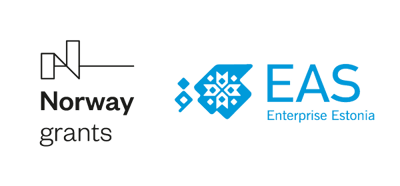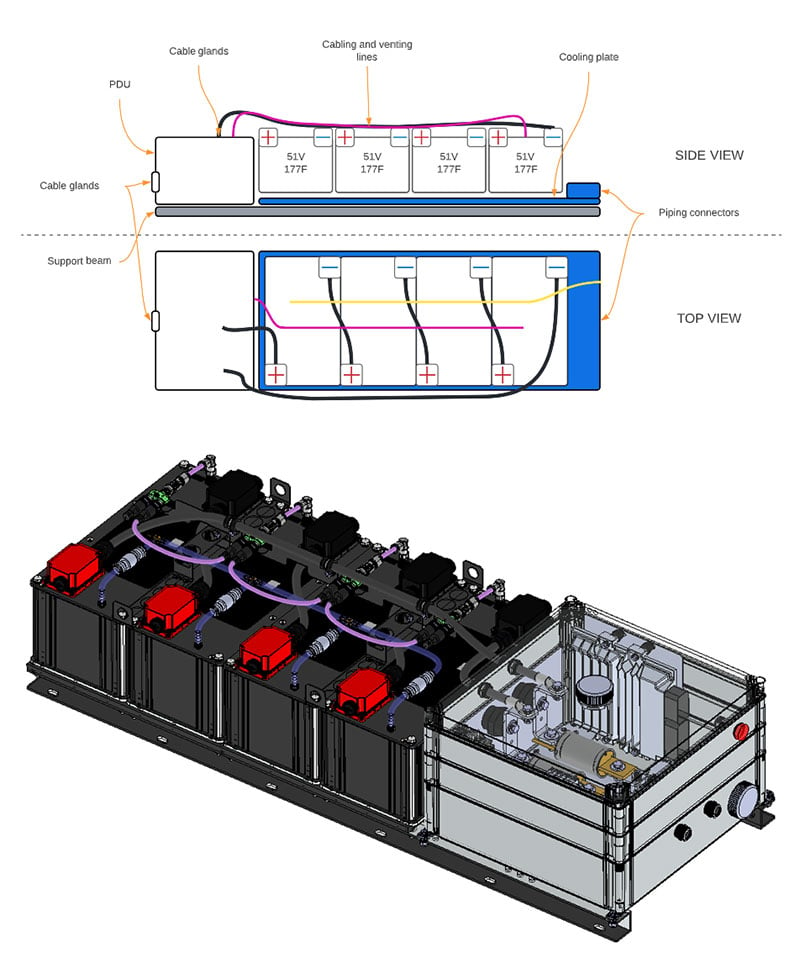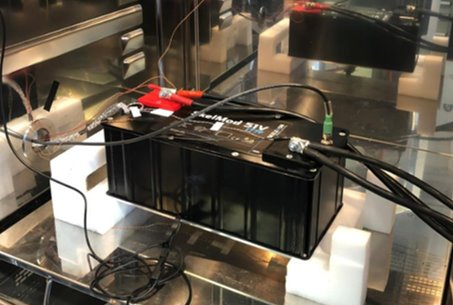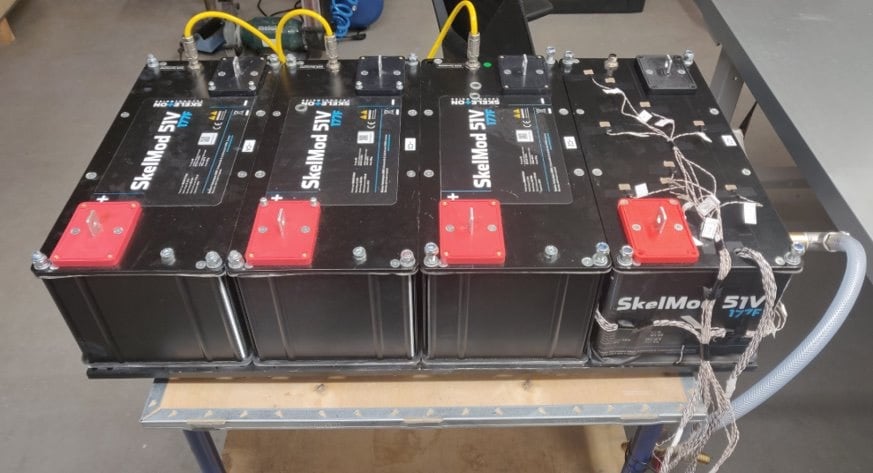
Development of Marine Certified Ultracapacitor Modules
Working together for a green, competitive and inclusive Europe

The project is funded by Norway Grants and Enterprise Estonia to facilitate cooperation to reduce economic and social disparities in Europe.
Project “Development of marine-certified ultracapacitor modules” has been supported by Norway Grants "Green ICT" programme with € 727 000. Project is carried out from August 2020 to January 2022. The aim of the project is to develop marine-certified ultracapacitor modules with first use in active wave heave compensation systems.
Project introduction
A passenger car emits between 1-4 tons of CO2 per year depending on vehicle specific consumption and mileage. A small 1MW marine crane working in the North Sea can emit 453 tons of CO2 a year doing just one thing: compensating for wave movements to stabilize the load, be it a servicing crew for windmills, a cable attached underwater autonomous vehicle or a drilling rig.
A typical wave heave compensation system operates 4 hours a day, seeing a wave every 6 seconds per wave, more than 800 000 waves per year. Every year more than 1 GW worth of Active Wave Heave Compensation Systems are installed emitting nearly half a million tons of CO2. That is, unless the energy used to lift the crane is recuperated with the opposite side of the wave - when the ship is lifted and crane can drop. Theoretically such a system could recuperate all energy if the waves were identical, but for the inefficiencies of electric motors or losses in energy storage.

Picture 1. Active heave compensation, AHC
The current project deals with the storage side of the equation. An ultracapacitor is an energy storage device capable of storing the energy at 98% efficiency, for 15 years of continuous operation. At the simulated 98% efficiency, servicing 1MW system with ultracapacitor-based energy storage would save ~440 tons of CO2 and ~220 000 l of diesel fuel per year.
Up to date, there are a handful of experimental ultracapacitor-based wave heave compensation systems launched. While these “pilots” have proven successful, two issues remain:
- there are no marine-certified ultracapacitors or capacitor modules while regulation updates demand ultracapacitors to be specifically certified for marine use, and
- the lifetime of the ultracapacitors currently in use is not satisfactory due to overheating issues related to high internal resistance of the products used.
The project addresses these issues by developing, certifying, and launching a marine-industry specific ultracapacitor module based on ultracapacitors.
Project objectives
- Development and certification of marine-specific ultracapacitor modules
- Mapping of Norway maritime industry needs
Project activities
- Identifying customer requirements
- Customer simulation
- Mechanical engineering
- Electronics engineering
- Accelerated lifetime testing
- Certification
- Production documentation preparation

Picture 2. Energy storage unit concept that includes protective functions

Picture 3. SkelMod 51V module in climatic chamber for performance testing

Picture 4. Test setup to determine system parameters with liquid cooling
Project results
- Certification marine ultracapacitor system
- Set of requirements and simulations for ultracapacitor based wave heave compensation systems
![]()
Project Manager:
Ardo Kõiv
Head of Module Development
Email: ardo.koiv (at) skeletontech.com
Project partner

Project Manager: John Breiland
Email: john.breiland (at) nxtech.no
Norway Grants
The Norway Grants and the EEA Grants represent Norway’s contribution towards a
green, competitive and inclusive Europe.
Through the Norway Grants and the EEA Grants, Norway contributes to reducing
social and economic disparities and to strengthening bilateral relations with beneficiary
countries in Central and Southern Europe and the Baltics. Norway cooperates closely
with the EU through the Agreement on the European Economic Area (EEA). Together
with the other donors, Norway has provided €3.3 billion through consecutive grant
schemes between 1994 and 2014.
Norway Grants are financed solely by Norway and are available in the countries that
joined the EU after 2003. For the period 2014-2021, the Norway Grants amount to €1.25
billion. The priorities for this period are:
-
- Innovation, Research, Education, Competitiveness and Decent Work
- Social Inclusion, Youth Employment and Poverty Reduction
- Environment, Energy, Climate Change and Low Carbon Economy
- Culture, Civil Society, Good Governance and Fundamental Rights
- Justice and Home Affairs
